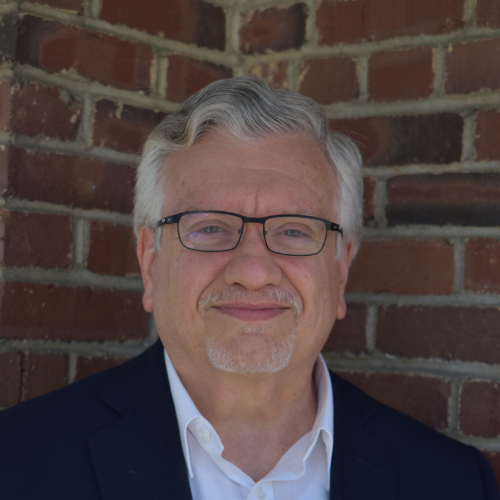Commentary on Acts 8:26-40
The three preceding lectionary texts from Acts have focused on the extraordinary effects of the risen Christ on the believing community in Jerusalem. In Christ’s name, not by their “own piety or power,” the apostles Peter and John enable a paralyzed man to walk (3:12‒19; 4:5‒12), and the fledgling congregation pools its properties and possessions to take care of needy members (4:32‒35).
But all is not bliss. Internally, a married couple drop dead after lying to the assembly about their financial affairs (5:1‒11), and a Greek-speaking group complains that their widows are not receiving adequate provisions (6:1‒7). Externally, the priestly authorities seize and censure the apostles for proclaiming the risen Christ (4:1‒22; 5:17‒40), and a young zealot named Saul launches a reign of terror against Christ’s followers, resulting in the execution of Stephen (one of seven “deacons” elected to oversee food distribution) and dispersion of many Christ-believers from Jerusalem (6:3‒6; 7:54‒8:3).
In this precarious environment, Philip, another of the seven table-ministers (6:5) emerges as the first “evangelist” to preach the gospel outside Jerusalem and Judea, beginning in bordering Samaria, which is occupied by people with a history of ethnic-religious conflict with Jerusalem-oriented Jews (8:4‒13; see also 21:8). Philip enjoys great success as a large number of urban Samaritans believe his message and are baptized in Christ’s name.
But soon Philip’s evangelistic career takes a strange turn, as “an angel of the Lord” suddenly dispatches him to the isolated “wilderness/desert road” running from Jerusalem to Gaza. Philip thus heads “toward the south” (more precisely, southwest) from Samaria (8:26). But the “south” term (mesēmbria) used here can also mean “noon” (see 22:6), doubling as a spatial and temporal marker. Thus, Philip the evangelist heads to a desert road in the noontime heat—a place and time he is least likely to encounter anyone to preach to!
It only gets stranger as a strange character rolls by. Actually, “races” by would be more accurate as the traveler cruises along in a chariot, requiring Philip to “[run] up to it” and “join it” (8:29‒30). This passenger is the chief treasury officer to “the Candace, the queen of the Ethiopians” (8:27), which explains his fancy ride. But what is he doing on this Jerusalem-Gaza roadway? He’s heading home to Ethiopia (ancient Nubia, south of Egypt) but not from a diplomatic mission. Rather, he had visited Jerusalem on a religious pilgrimage to worship Israel’s God. He had also procured a scroll of Isaiah, a valuable document not widely available, which he happens to be reading when Philip approaches (8:27‒30).
So midday in the middle of the Gaza desert, Philip encounters a wealthy, chariot-riding, God-fearing, Bible-reading African official. Just another day in the life of a Christ evangelist—with another wrinkle that’s really the main feature. This fascinating, multifaceted figure is also a eunuch, and it is this sexual characteristic that most defines him in Acts’ story. He is first introduced as “a man, an Ethiopian eunuch” (my translation). Leading with “man”—anēr/“male” (glossed over in New Revised Standard Version Updated Edition)—is ironic, if not sardonic: by social definition, a eunuch is no-man, no real man, no whole man. Though enjoying advantages befitting his high economic and political status, his eunuch condition marks him as deviant in “normal” society. After his fuller introduction, the narrative only identifies him as “the eunuch” (ho eunouchos, 8:34, 36, 38, 39).
If his main identity is “the eunuch,” his main activity is “reading the prophet Isaiah” (8:28). This is what first catches Philip’s ear when he catches up to the chariot. Philip hears the eunuch reading Isaiah aloud (a servant would be driving while he reads) and asks him, “Do you understand what you are reading?” (8:30). That is the central question, and Philip’s core mission is to help this religious seeker—whatever his other identities (Philip never mentions them)—understand the scripture he’s reading. A clever play on the word ginōskō (“know”) reinforces this aim—ginōskeis ha anaginōskeis (8:30)—which we might render, “Do you know what you’re seeking to know by reading?” or “Do you realize what you’re reading?”
The eunuch is not just reading any random Isaiah text when Philip arrives. It’s an evocative passage about a shorn, scorned, shamed sheep-like figure to whom “justice” and “generation” (or “offspring,” genea) were denied (Isaiah 53:7‒8 // Acts 8:32‒33). The eunuch specifically wants to know, “About whom … does the prophet say this, about himself or about someone else?” (8:34).
This is intensely personal for the man as a eunuch. Again, whatever benefits he has in the Candace’s court, he suffers widespread stigmatization in Gentile and Jewish society as a permanently emasculated, mutilated figure unable to procreate—in short, a threatening sexual anomaly. More particular to his religious interests, he remains “cut off” by law from full participation in the covenant community, according to Deuteronomy 23:1—unless Isaiah offers a glimmer of good news; unless there’s some way to “describe” a more positive outcome for the shorn and slain sufferer’s “generation” and “life” (Isaiah 53:8 // Acts 8:33).
Philip the evangelist comes at the right time and place (orchestrated by the Spirit), and “starting with this [Isaiah] scripture he proclaimed to him the good news [euēngelisato] about Jesus” (8:35). Acts provides no transcript of Philip’s sermon, but we readily imagine his identification of the unjustly crucified Jesus with Isaiah’s innocent slain figure.
This Jesus, God’s Son and Messiah, suffered in sympathetic solidarity with all victims of violence and stigmatization, like Isaiah’s slaughtered lamb—and the Ethiopian eunuch. And the best news is that “his life [was] taken away from the earth” (Isaiah 53:8 // Acts 8:33) in resurrection and exaltation by God, thus opening the household of God for faithful sufferers—including eunuchs, foreigners, and other “outcasts”—just as Isaiah announced a little later in his scroll (56:3‒8)!
The prophet Isaiah and Jesus Messiah revise Deuteronomic law to better reflect the inclusive thrust of God’s covenant to bless all peoples, families, and persons on the earth (see Genesis 12:1‒3; 22:17‒18).
The Ethiopian eunuch readily grasps the point and moves to act: “Look, here is water! What is to prevent me from being baptized?” (8:36). How about that—water in the desert at the optimal evangelistic moment! With barriers blocking fellowships broken down, nothing “prevents” Philip and the eunuch entering the baptismal waters together and emerging as full brothers in Christ in God’s family.



April 28, 2024